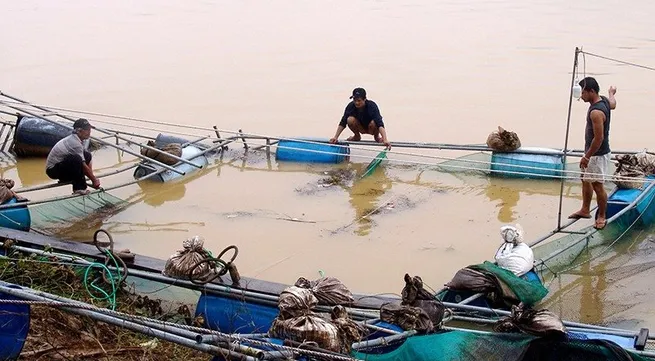Efforts strengthened to restore production after floods

According to statistics, during the rains and floods in five central provinces of Ha Tinh, Quang Binh, Quang Tri, Thua Thien Hue and Quang Nam, over 9,000 hectares of rice and other crops were damaged and inundated, while nearly 100,000 heads of cattle and poultry were killed and swept away.
Currently, water has receded; therefore, the localities should quickly instruct and help people clean their fields, restore lightly affected areas and re-plant in flooded areas to ensure production.
Despite great damage to agricultural production, on the positive side, the rain and flooding washed away and cleaned the fields and treated pests and diseases while also providing the soils with fertile alluvium.
The area of replanted maize and vegetables after the rain and flooding in the flood-hit central provinces is expected to be around 39,000 hectares, including 25,500 hectares of maize and 13,300 hectares of other vegetables and crops. However, the prolonged rain, flooding, and inundation has caused a shortage of seeds, affecting the replanting after the water receded. Therefore, the localities’ relevant agencies need to urgently review and synthesise the damaged rice and crop areas in order to make policies to help the locals to recover and ensure production returns to normal. In addition, the local specialised agencies should advise the provincial People’s Committees to propose that the Prime Minister provide support in seeds from the national reserve so that the local people can promptly restore production.
In the immediate future, the localities need to actively open up water flows, dredge canals and drains in the fields, while making full use of seeds stored in the area to be ready for re-planting. For the completely damaged vegetable areas, localities should prepare seeds for replanting once the weather is favourable, especially short-term vegetables, to ensure supply for the market, avoiding food scarcity. In addition, the localities should advise farmers to replant when the rains have fully stopped and the weather gets dry. The functional agencies should continue to develop documents on solutions to restore the production of rice, crops and fruits as well as assign technical staff to follow the production situation and the weather developments to make prompt response measures.
For fruit trees that were inundated, the farmers need to dig trenches, clear the flow and pump out water from the garden to recover the trees. It is essential to focus on digging the soil and breaking the topsoil in the canopy areas in the gardens that have been drained to help the soil open, reduce damage and encourage new root growth. In addition, the locals should regularly monitor the gardens, especially the trees with the root loss to timely detect disease caused by fungus and promptly treat them. When the roots have recovered, organic fertilisers in combination with mineral and foliar fertilisers should be applied to increase resilience. In addition, local authorities need to strengthen inspection and control of production and business of seeds and agricultural materials to prevent the trading of fake and poor-quality goods, which adversely affects production and causes damage to farmers.





